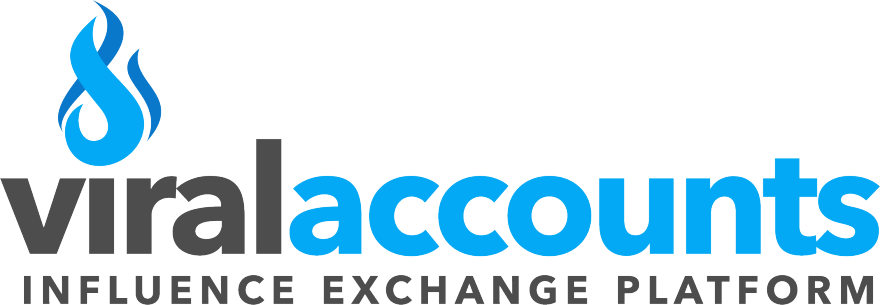Interesting Facts
Maybe you’ve come across tempting ads or listings online offering “Twitter accounts for sale” or social media profiles with thousands of followers ready to be transferred for a price. At first glance, buying an existing account can seem like a clever shortcut — skipping the long, slow grind of building an audience from scratch. After all, the account might already have an engaged following, a clear niche, or established influence that you’d otherwise spend months or years creating. But before you click “buy,” it’s worth pausing to ask: Is it even legal to purchase social media accounts? And what kinds of hidden risks could be lurking beneath the surface?
The answer isn’t a simple yes or no. The legal terrain around buying social media accounts is surprisingly complex, shaped by platform terms, local laws, and ethical considerations. To get a full picture, we need to dig deeper — using Twitter as our main example, since it’s one of the most popular platforms, but also touching on Facebook, Instagram, and others. Along the way, we’ll break down the risks, the rules set by social networks, and safer alternatives for anyone hoping to grow their influence honestly and sustainably.
The Legal Landscape: What the Law Actually Says
Unlike many areas of digital life, there are no clear laws in the United States or most other countries that explicitly ban buying or selling social media accounts. If you look purely at government regulation, owning multiple accounts or transferring an account is not outright illegal. This isn’t a black-and-white criminal act like hacking, fraud, or identity theft (although, as we’ll see, there can be legal issues tied to other behaviors related to accounts).
So why does buying and selling accounts seem so shadowy — almost like an underground practice? The answer has less to do with laws on the books, and more to do with the contracts users agree to when they open accounts: the terms of service (ToS). These are essentially binding agreements that set the rules for how you may use the platform, and they weigh more heavily than many realize.
Platform Terms of Service: The Real ‘Rules’ Behind Account Ownership
When you create an account on Twitter, Facebook, Instagram, or any major social media platform, you enter into a legal contract — the ToS. These agreements are detailed, and often not read thoroughly by users, but they contain strict rules about who can own and use accounts, and what behavior is permitted.
Twitter, for instance, explicitly bans the act of selling or transferring accounts. Their policies state that accounts should be managed only by the person or entity who created them. Should Twitter detect that an account has changed hands without authorization, it can suspend the account — sometimes permanently. Facebook and Instagram enforce similar rules, emphasizing that account trading undermines community trust and is frequently linked to scams or fraudulent schemes.
Breaking these platform rules isn’t just a small slip-up; it risks losing the account entirely. When a suspension happens, you’re not only locked out from your followers and content, but your online reputation — painstakingly built over time — may vanish overnight. And unfortunately, these platforms hold the ultimate power to enforce such rules without any legal process or appeal mechanisms that favor the account buyer.
This reliance on ToS rather than formal law makes the issue tricky: while governments don’t prosecute account buying as a crime, platforms’ enforcement means buyers face large practical consequences. More details on the legality can be found in this legality analysis of selling social media accounts.
Understanding the Risks: More Than Just Getting Banned
Losing access to an account is just one of several dangers involved in buying social media profiles. It’s a risky business with pitfalls that extend beyond a mere platform ban.
Loss of Access and Buyer’s Remorse
Even if a seller promises full control, many buyers later find themselves locked out, with the original owner still holding the keys — or simply disappearing with the payment. Since these sales often happen in informal marketplaces or private transactions outside official channels, getting your money back when things go wrong is usually impossible.
You might think you’re making a safe purchase, only to find the account is tied to an old phone number or email the seller refuses to relinquish, or even worse, the original owner uses pre-arranged backdoors to reclaim control later. This scenario leaves buyers empty-handed and out of funds.
Scams and Fake Engagement
The world of purchasing social media accounts is rife with fraud. Some sellers offer profiles inflated with fake followers and bots to artificially boost perceived influence. Soon after the sale, engagement nosedives, and your “followers” turn out to be inactive or automated accounts that add no real value.
There’s also the risk of inheriting accounts previously involved in spamming, fake promotions, or even malicious behavior — harming your brand and credibility by association. Discussions about such risks are common on platforms like Instagram Marketing Reddit.
Privacy and Ethical Concerns
Buying accounts sometimes means stepping into privacy gray areas. What if the prior owner posted personal pictures, shared sensitive information, or messaged followers in a way that you’re unaware of? Transferring that digital identity without transparency can confuse or mislead audiences, potentially violating privacy protections.
More seriously, impersonation can unintentionally occur if you buy an account that represents an individual or business without clear disclosure. Such actions may cross legal lines involving trademark infringement, defamation, or identity theft.
Damage to Personal or Business Reputation
Imagine acquiring an account only to later discover it has a sordid past — comments or followers linked to hateful content, spam, or controversies. Suddenly, that “influential” profile feels less like a prize and more like a liability.
Audiences value authenticity, and a sudden, unexplained change of voice or style can raise suspicion. Losing trust can be far more damaging than slow, organic follower growth ever was.
Legal Gray Areas: What Happens If Problems Arise?
Beyond platform rules, the legal environment surrounding social media account transactions is murky and varies widely by location. Some countries have strict laws preventing the unauthorized use of another person’s identity — which can extend to social media profiles. In those cases, purchasing an account could run afoul of identity theft statutes or privacy laws.
For example, Europe’s General Data Protection Regulation (GDPR) enshrines strong protections around personal data. If an account contains personal information about its original owner, transferring that account might violate GDPR regulations.
Courts increasingly treat social media misuse seriously, with a growing number of cases addressing digital impersonation, online harassment, and fraud. While few prosecute mere account buying today, the legal landscape is evolving, and new precedents could tighten scrutiny. For a detailed view on social media ownership conflicts, see this insight from a legal perspective: social media account ownership when a business relationship breaks down.
This blurry zone means buyers face uncertainty: even if technically “legal” in some jurisdictions, consequences could arise if deception, harm, or unauthorized data use is involved.
Alternatives to Buying Accounts: Growing Authentically
Given the pitfalls, many experts and influencers advocate for growing social media accounts the authentic way — through effort, creativity, and genuine engagement. Though slower, honest growth builds stronger connections that no bought account can match.
Organic Growth Strategies
Creating meaningful and share-worthy content remains critical. This might include posting consistently relevant updates, interacting openly with followers, and participating in conversations around your niche.
Teaming up with other content creators, joining relevant groups, or cross-promoting through multiple platforms can gradually expand your audience reach. Use hashtags thoughtfully and pay attention to optimal posting times to boost visibility naturally.
Trying new formats — live streams, behind-the-scenes stories, Twitter threads with insightful commentary — can spark fresh interest. The key is building relationships, not numbers.
Official Partnerships and Platform Features
Platforms now offer tools and features that allow multiple people to collaborate within the same account ecosystem legally and transparently. For instance, Twitter’s Professional Profile and Facebook’s Business Manager tools enable teams or agencies to handle social media marketing without violating terms.
Verification badges further boost credibility, showing users your account is authentic and trustworthy. Investing in these features contributes to genuine growth and audience confidence. You can explore verified accounts and badges at Twitter verification badge and Facebook verification badge services.
Learning from Analytics
Using built-in analytics or third-party tools helps track what content resonates and how your audience grows. Armed with data, you can tailor your approach consistently, optimizing for engagement rather than chasing vanity metrics.
Ready to Grow Your Social Media Influence Safely?
Consider Genuine Growth Options
Is buying a Twitter account illegal?
No, buying a Twitter account isn’t against U.S. law explicitly, but it violates Twitter’s terms of service. This can result in suspension, banning, or loss of the account.
Can I get in trouble for impersonating someone on social media?
Yes. Impersonation violates multiple laws and platform policies and can lead to legal action or removal of accounts.
Are there safer ways to grow my social media presence?
Definitely. Focusing on producing quality content, engaging with your followers authentically, collaborating with others, and using official management tools are safer, more sustainable paths.

